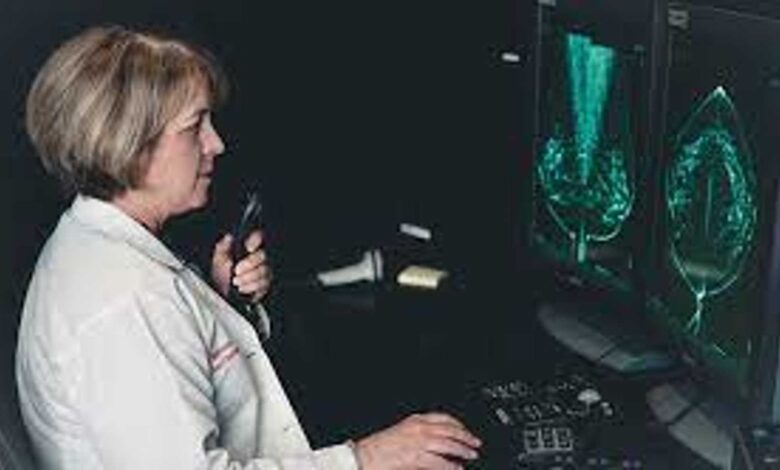Two SI students are leading the charge for women’s health advocacy.

[ad_1]
breast cancer screening guidelines : Sadie O’Leary and Sophia Todd, presidents of the Women’s Health Advocacy Club, take action to raise awareness and promote change.
How did two ambitious young high school students light up two of San Francisco’s most visible landmarks, City Hall and the Salesforce Tower, to raise awareness to the unfair treatment of women in healthcare?
The Women’s Health Advocacy Club, founded and led by Sadie O’Leary and Sophia Todd, was responsible for its success.
O’Leary and Todd, juniors at Saint Ignatius College Preparatory (SI), wanted to go beyond their school’s boundaries to raise awareness about women’s health-care rights in their community. They formed and run the Women’s Health Advocacy Club, which seeks to raise awareness about the inefficient national breast cancer screening recommendations and how they may be altered to benefit all women. breast cancer screening guidelines
“Generally, most women in the United States are recommended an annual mammogram to screen for breast cancer,” O’Leary said. “But a personalized screening approach that takes into account a women’s environment, genetic risk factors and lifestyle may be more beneficial at targeting their personal risk for breast cancer.”
The club collaborates with Dr. Laura Esserman, a breast cancer oncologist and surgeon, on the WISDOM (Women Informed to Screen Depending on Risk Measures) Study at the University of California San Francisco (UCSF), which tests two groups of women to determine which approach detects breast cancer most effectively. One group receives an annual mammography as recommended by national recommendations, whereas the other group is treated using a tailored strategy according to their individual risk factors. breast cancer screening guidelines
“We have made great strides in the treatment of breast cancer by understanding that there are many different types of cancers, and we tailor treatment accordingly,” Esserman stated. “Not everyone should be treated the same. We now need to apply those advances to screening. We should begin by establishing the risk and type of breast cancer, then customize screening and prevention strategies accordingly. That is exactly what we are doing with the WISDOM study. Everyone who has not had breast cancer can participate, learn about their risk, and receive a personalized advice. Help us build better data and a brighter future.”
Todd and O’Leary were inspired by Esserman’s initiative to engage their larger community in understanding that a single breast cancer treatment is ineffective for all groups of women.
[ad_2]
Read More



